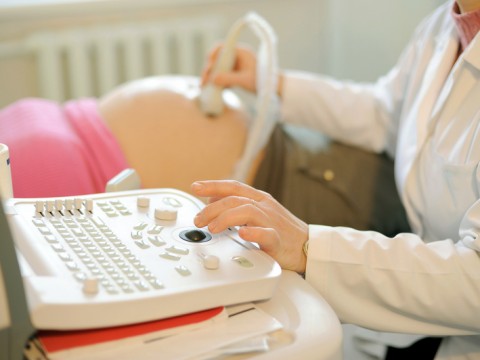Prenatal testing sort of starts with peeing on a stick to find out whether you’re pregnant. Once you get that positive test, a few other tests will come along via your ob/gyn. While more involved tests can be done if you have complications, concerns or a high-risk pregnancy, a few tests are common across the board for pregnant women.
First Trimester Screening
Between 10 and 14 weeks of pregnancy, two tests are commonly performed. The first is a maternal blood screening that will measure the level of two pregnancy-specific substances, pregnancy-associated plasma protein (PAPP-A) and human chorionic gonadotropin (HCG). PAPP-A is a protein produced in the placenta early on, and HCG is a hormone the placenta produces early in pregnancy.

The second common screening in the first trimester is an ultrasound to test for fetal nuchal translucency (NT). Using an ultrasound, this test examines the area at the back of the baby’s neck for increased fluid.
Combined, these tests tell you if the baby has a risk of Down syndrome (trisomy 21) or Edwards syndrome (trisomy 18). If you have abnormal results, other tests might be performed, such as chorionic villus sampling or amniocentesis.
Quad Screen
Another maternal blood test is typically done between weeks 15 and 20 of pregnancy. This measures four substances that normally come from a baby’s blood, brain, spinal fluid and amniotic fluid. The results can indicate whether the baby has an increased risk for conditions such as spina bifida or Down syndrome. If you have abnormal results, other tests might be performed such as a fetal ultrasound or amniocentesis.
Fetal Ultrasound
Between the 18th and 20th week of pregnancy, most ob/gyns perform a fetal ultrasound to determine whether the baby has congenital abnormalities and whether the placenta is healthy. This ultrasound will check to make sure the baby’s growth and development are right on target. And, while not a diagnostic tool, this is the ultrasound during which parents can often determine the baby’s gender.